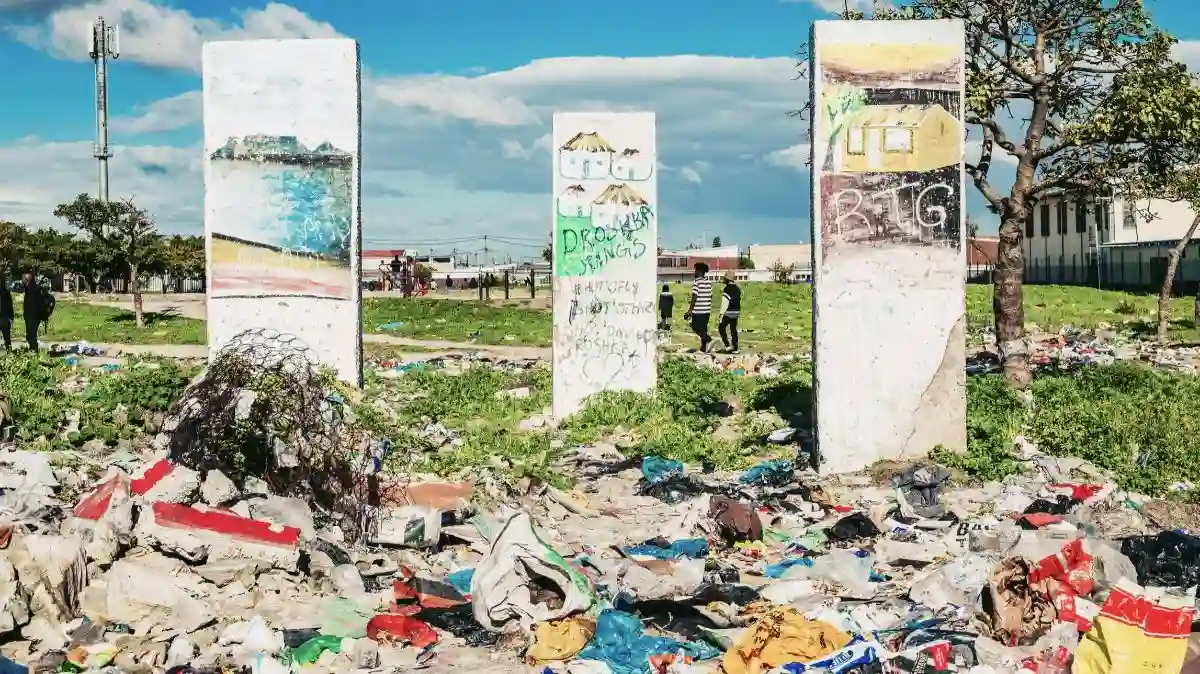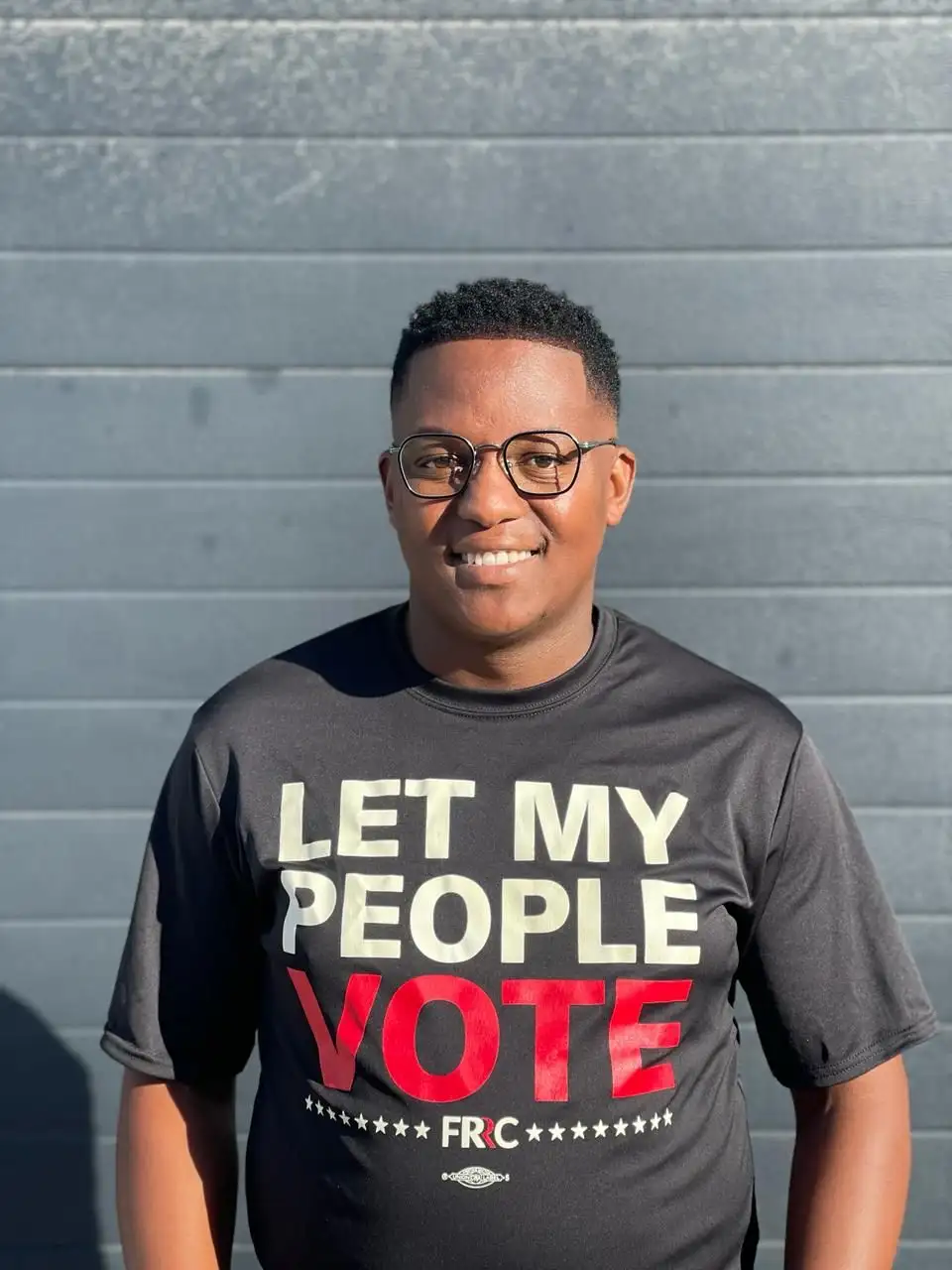“We are reimagining the question of basic services, starting with play parks and children's rights,” says Nkosikhona Swartbooi, housing justice activist and organiser with the Movement for Collective Action and Racial Equity (CARE).
The Right to Play campaign – launched earlier this year at Baba Park, the “biggest park and the dirtiest park in Mfuleni”– is an effort across the City of Cape Town to make access to safe, dignified play, something all children are entitled to, not a privilege reserved for a few.
 Mfuleni's Baba Park. Photo: Right to Play Campaign via Daily Maverick
Mfuleni's Baba Park. Photo: Right to Play Campaign via Daily Maverick
What is the problem?
On the 30th of August 2021, Nkosikhona Swartbooi’s nephew Imthande fell into an open municipal manhole in Khayelitsha and drowned in the sewer. “He was two years old, a beautiful baby boy.” Swatbooi says, “The manhole had been open for weeks and residents reported the open manhole, but the municipality never came to fix it.” Until it was too late. Imthande Swartbooi is one of too many children in Cape Town and South Africa at large who “have died as a result of exercising their right to play” because of neglected municipal infrastructure and other preventable dangers.
Many neighbourhoods in Cape Town’s informal settlements lack parks entirely, leaving children to play on often dangerous streets and roads. Those parks that do exist in poorer communities and in Black and Coloured townships are in a state of neglect. “There's refuse there. It's dirty. There are used needles, broken glasses, and dead animals.” Swartbooi asks, “And these are spaces kids are supposed to play in?”
How are they fixing it?
Since Imthande’s death, a question has been weighing on Swartbooi: “What would justice look like for my nephew and my family?” While the City of Cape Town has agreed to compensate the family with a settlement, the wider question of a lack of safe places to play persists, highlighting the urgent need for changes at a wider scale. “And that is the genesis of the right to play campaign,” says Swartbooi
At the start of 2025, Movement for CARE launched the Right to Play Campaign with a bold and urgent set of goals. Central to the campaign is a legal review of Section 28 of the Constitution to ensure that the Right to Play is explicitly recognised as a children’s right. The movement is also preparing a potential class action lawsuit on behalf of families whose children have been harmed by unsafe public spaces. Beyond the courts, Movement for CARE is pushing for revised norms and standards for the design, maintenance, and safety of municipal parks, along with a plan to expand access to quality parks in underserved communities. Importantly, it also advocates for the co-design of inclusive play spaces, particularly for children with disabilities.
 Nkhosikhona Swartbooi, a lead organiser on the Right to Play Campaign Photo: Supplied
Nkhosikhona Swartbooi, a lead organiser on the Right to Play Campaign Photo: Supplied
What makes it work?
- Rooted in community concerns: Movement for CARE chose to launch their campaign in Mfuleni, because the community was especially concerned about the dangerous, dirty state of its parks. “The very first step for us was to go around communities, speak to the neighbours of these parks,” says Swartbooi.
- Social audits: Movement for CARE has trained 60 community members from Mfuleni, Khayelitsha, Dunoon and nearby areas to conduct social audits of parks, measuring service delivery against provincial standards. The results will compare township parks with those in wealthier areas to expose inequalities in children’s access to safe play.
- Led by children and youth: A leading voice in the Right to Play campaign is ten year old Ayana Razak. She’s creating a video series called “Rate My Park” where she considers parks based on her own list of criteria, like whether there are soft surfaces and shade, if bins are emptied often and what kind of shape swings are in.
- Deepening participation in local government: To fight for better services, Movement for CARE works to amplify residents’ voices in municipal budgeting. They help communities learn who sits on their ward committees, how to reach councillors, what funds are allocated and how they can have a say over them.
- Civil society and city working together: “Our role is not only to just shine the light on the wrongs”, Swartbooi emphasises that the campaign aims to work in collaboration with the City of Cape Town and other organisations so that together, civil society movements and local government can strengthen each other in ensuring the right to play is realised for all children and youth in Cape Town.
The Right to Play touches on many aspects of local government service delivery, including and beyond parks. Its realisation depends on municipal sewers being well maintained, electrical infrastructure being safely secured and refuse being picked up regularly. If the campaign succeeds in transforming access to basic services for children, “I am hopeful that we'll have a much safer and more equal society,” says Swartbooi.
Get involved
“We have not got any formal funding from the mainstream donors, all of this work has been on a voluntary basis, using our own money,” says Swartbooi. The campaign is evidence of the ways movements can start – especially doing education work – without large pots of money.
But for it to realise its full potential, the Right to Play campaign is in search of sponsors. If you want to get involved with or support the campaign, you can reach out to Nkosikhona Swartbooi on 069 595 2567 or find Movement for CARE’s social media pages.
Acknowledgements
Author: Maru Attwood
Header image: Movement for CARE Facebook.